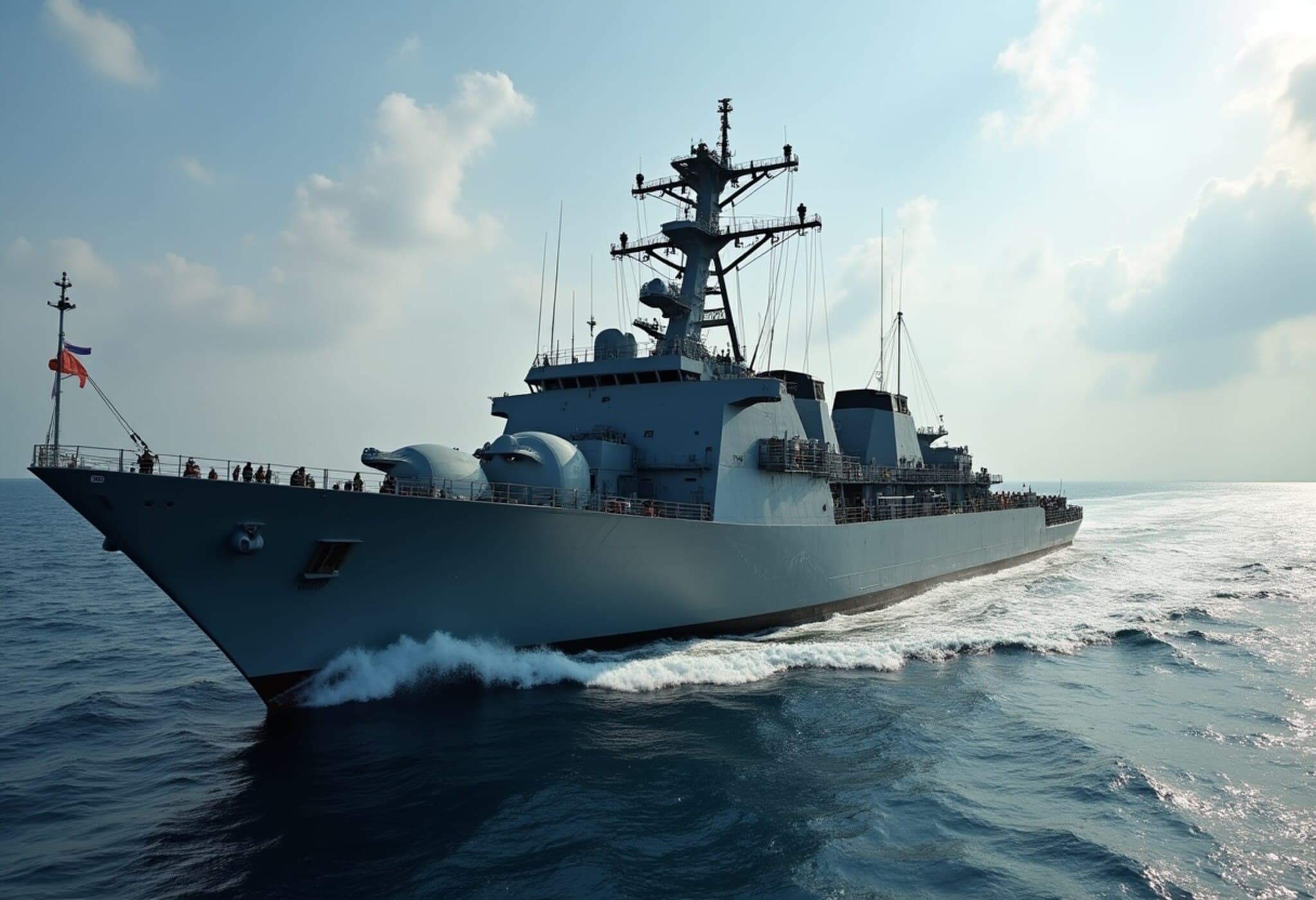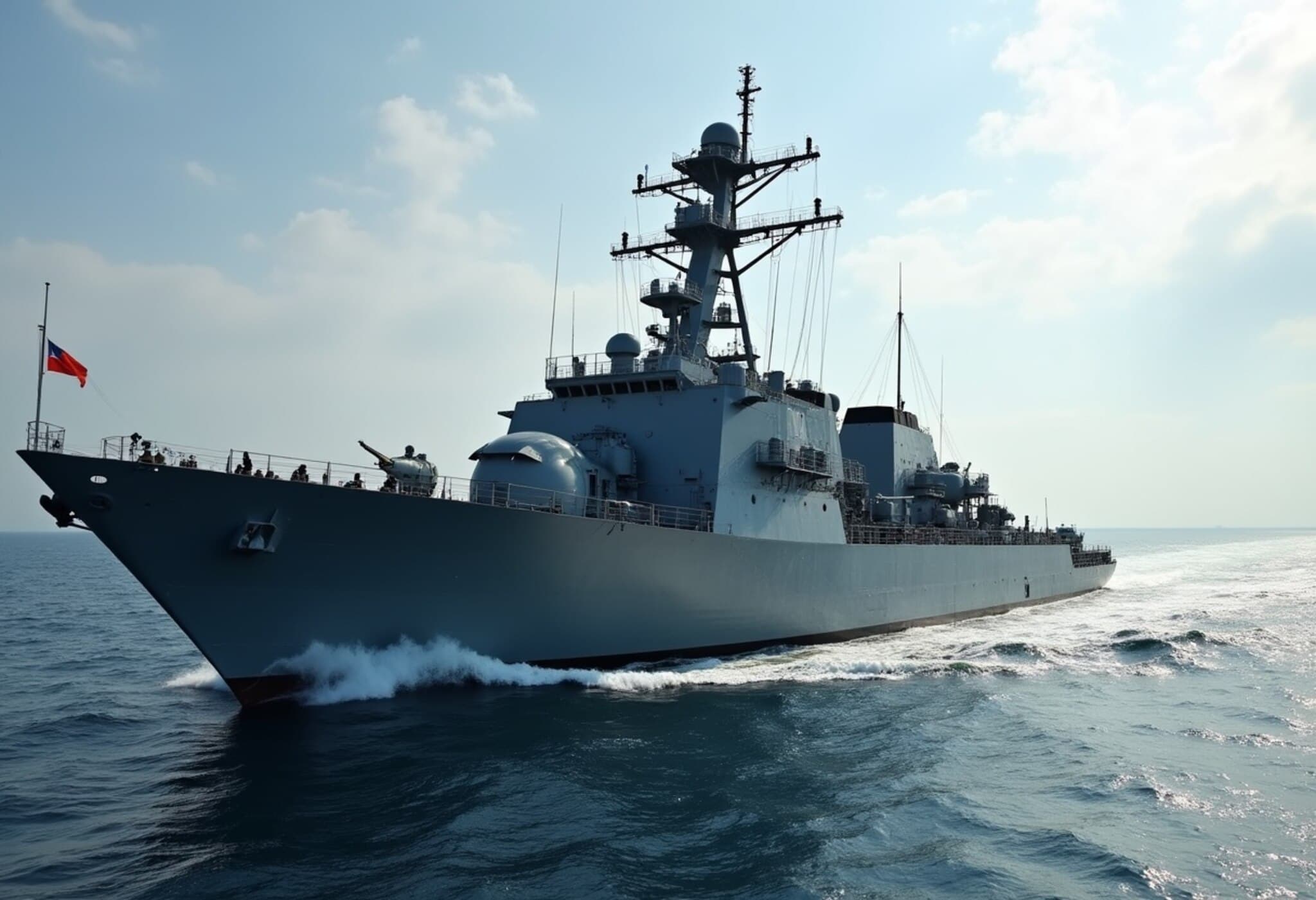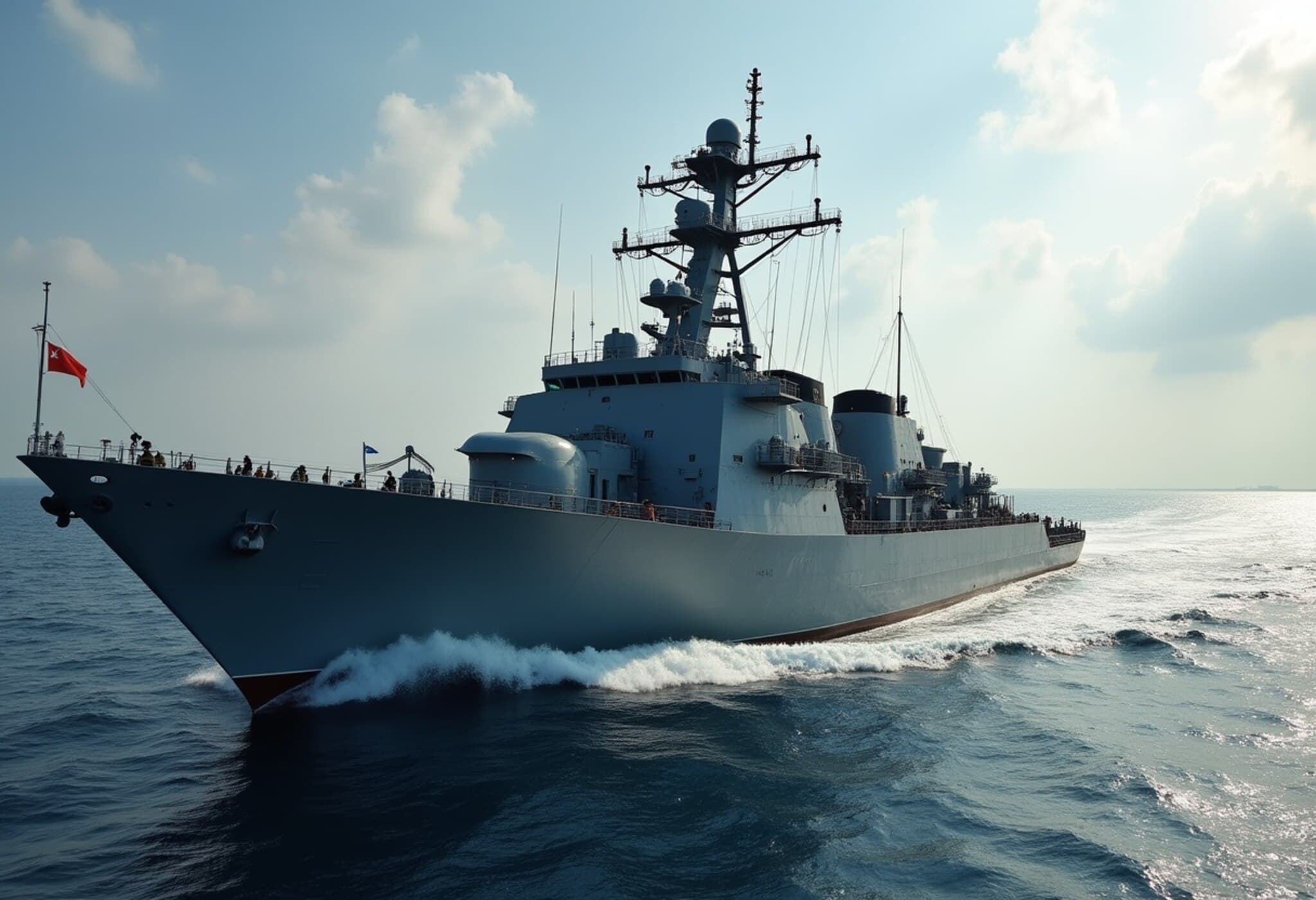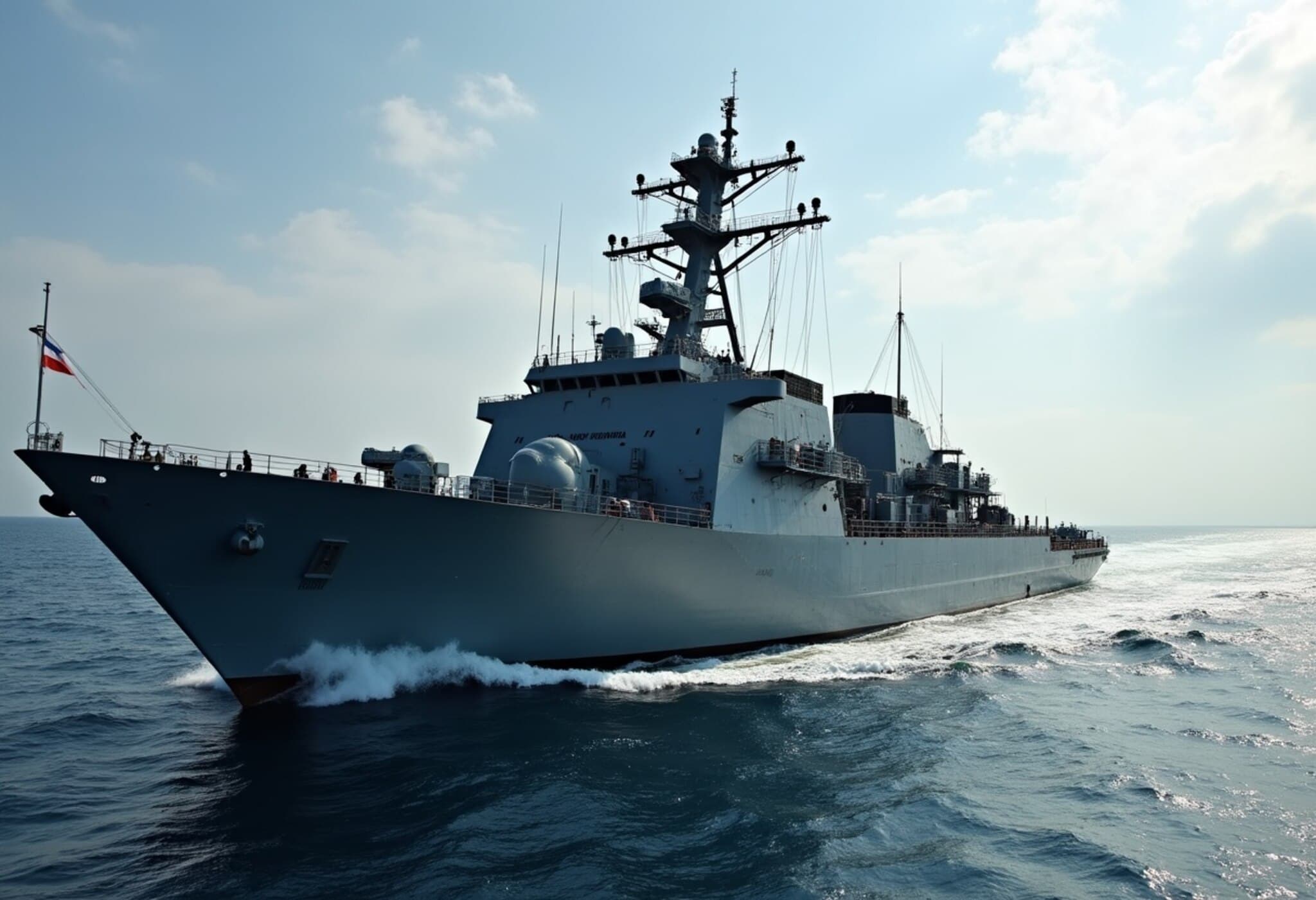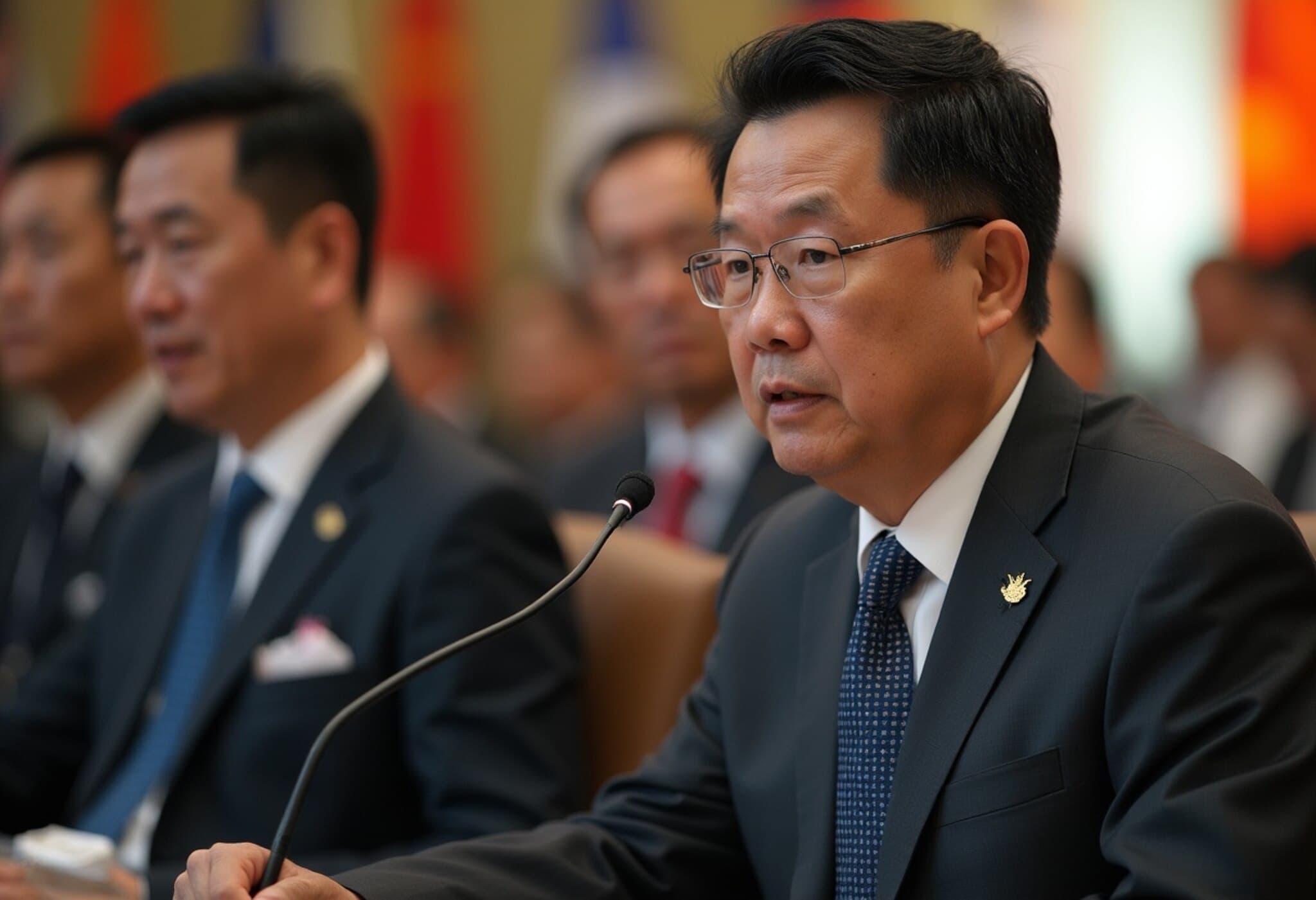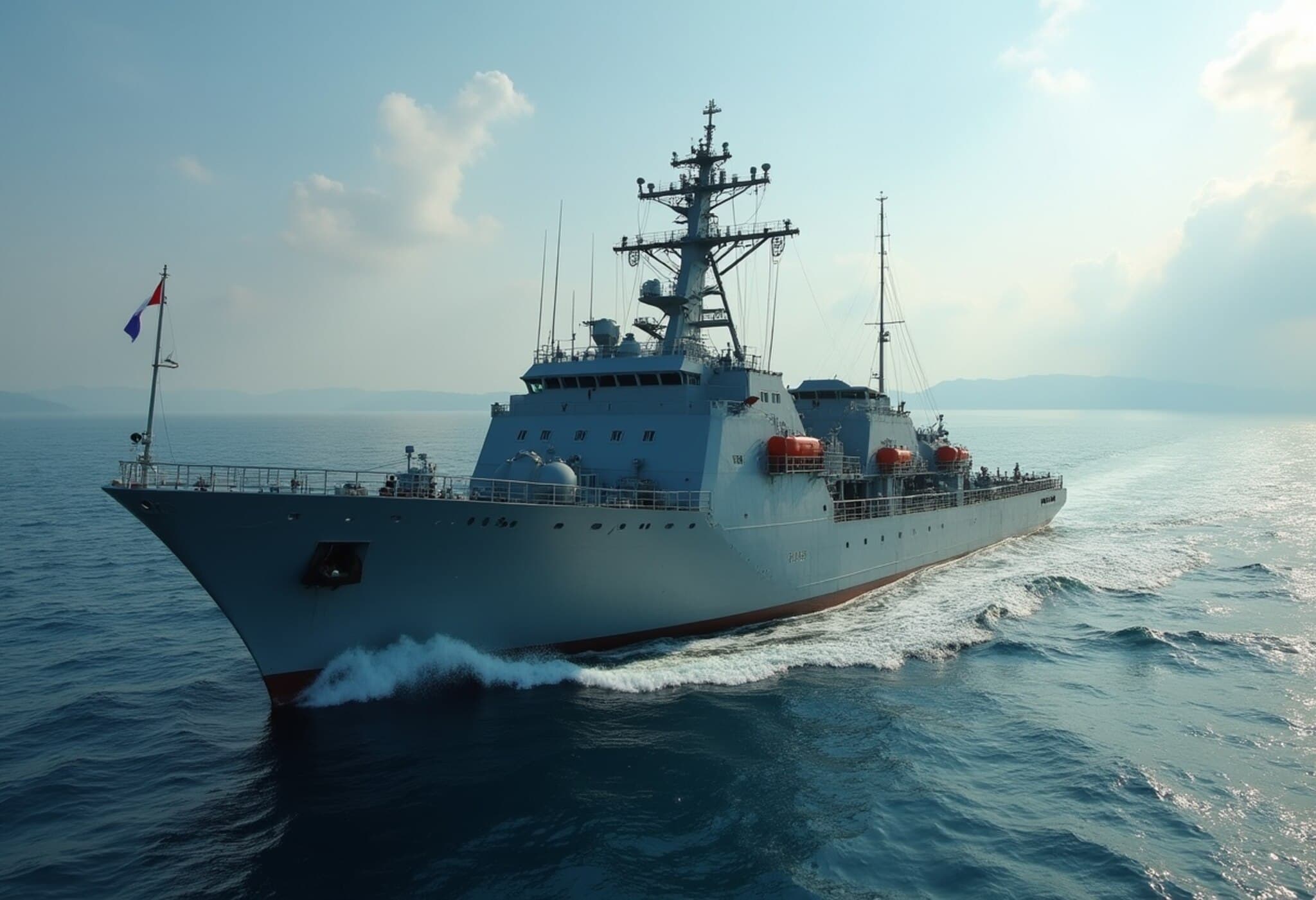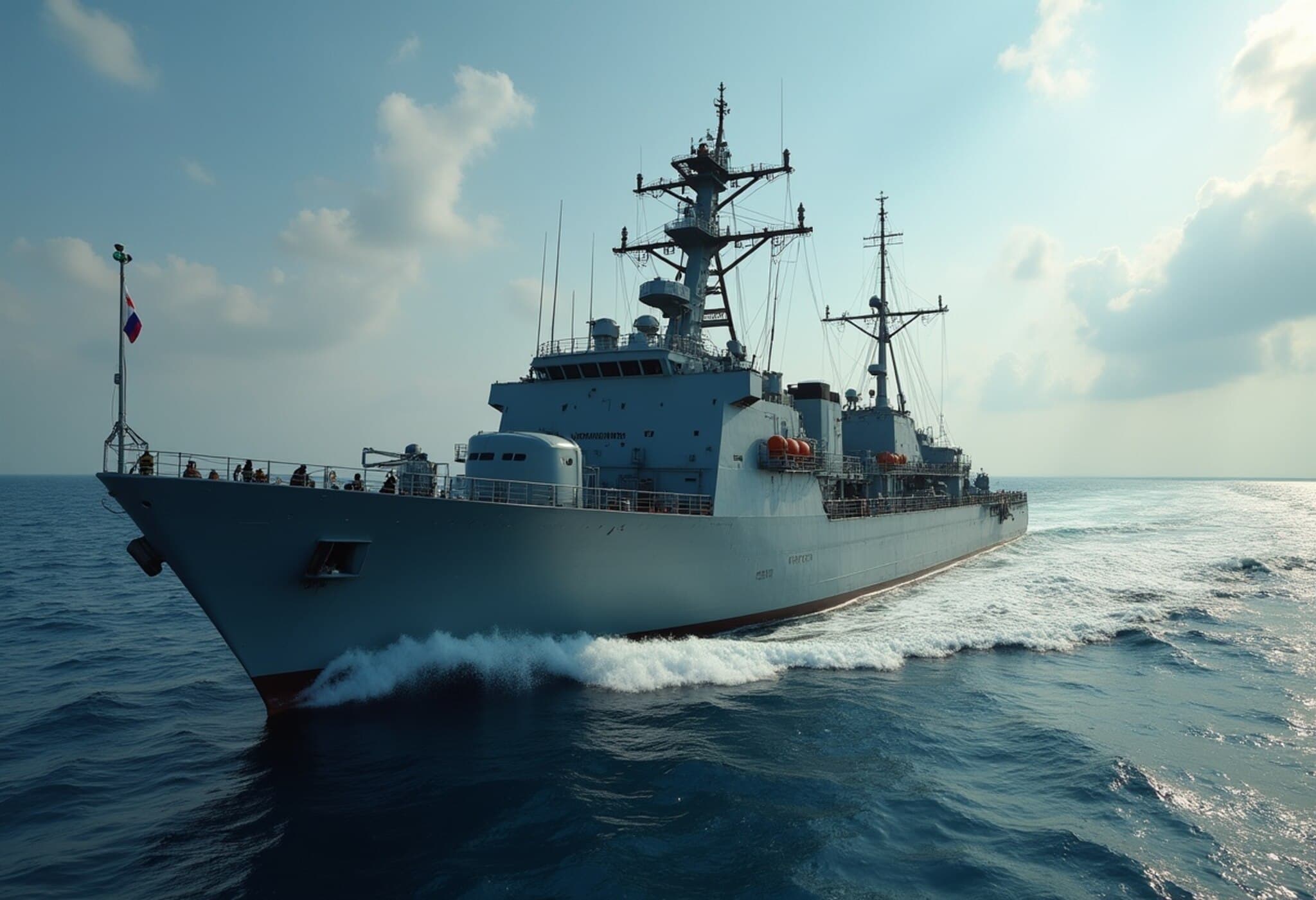China Denounces US Naval Maneuver Near Scarborough Shoal
In a sharp escalation of tensions in the South China Sea, China has leveled accusations against the United States, claiming the guided-missile destroyer USS Higgins violated Chinese sovereignty by entering waters near the contentious Scarborough Shoal, which China refers to as Huangyan Island. This reef, claimed by both China and the Philippines, lies at the heart of overlapping territorial claims that have long destabilized the region. While China asserts this area as part of its exclusive economic zone, the international community broadly recognizes Philippine sovereignty over the shoal.
Chinese Military Response and Statement
On August 13, 2025, China's Southern Theater Command announced that Chinese naval forces intercepted the USS Higgins, issued warnings, and compelled the U.S. warship to leave the contested zone. Senior Colonel He Tiesheng emphasized that the intrusion infringed upon China's sovereignty and posed a serious threat to regional security and stability. The statement described the US actions as a direct challenge to China's territorial integrity and warned of ongoing vigilance by Chinese forces to protect national interests.
US Reaffirms Freedom of Navigation Operations
Countering China's claims, the United States firmly rejected allegations of unlawful entry. Sarah Merrill, spokesperson for the US Navy's 7th Fleet based in Japan, clarified that USS Higgins was conducting a routine freedom of navigation operation (FONOP), exercising rights under international law to navigate through internationally recognized waters.
Merrill stated, "China’s narrative about this mission is inaccurate. The United States upholds its legal right to sail, fly, and operate wherever international law permits, as USS Higgins did here. No amount of coercion will deter us from defending a rules-based maritime order."
Context: Scarborough Shoal and International Law
The Scarborough Shoal dispute is emblematic of broader maritime tensions in the South China Sea, where China's expansive "nine-dash line" claim conflicts with the maritime rights of neighboring countries, particularly the Philippines. In 2016, the Permanent Court of Arbitration (PCA) issued a landmark ruling under the United Nations Convention on the Law of the Sea (UNCLOS) that invalidated China's nine-dash line claims as having no legal basis.
The PCA also determined that China violated the Philippines’ sovereign rights in its exclusive economic zone by obstructing fishing activities and resource extraction, further condemning the construction of artificial islands in the area. The ruling has found broad support from major global players including the United States, India, Australia, Japan, the United Kingdom, and the European Union, signaling a collective commitment to uphold international maritime law and freedom of navigation.
What This Means for Regional Stability
The USS Higgins incident underscores the fragile equilibrium in the South China Sea, a crucial maritime corridor through which approximately one-third of global shipping passes. China's assertive posture and territorial claims challenge the sovereignty of smaller ASEAN nations while complicating US strategic interests in maintaining free and open sea lanes.
Experts highlight that while FONOPs by the United States serve to deter unilateral territorial expansions, they also risk provoking further confrontations if diplomatic channels remain limited. This incident raises critical questions about the prospects for conflict resolution and the roles that diplomatic engagement and international legal frameworks must play moving forward.
Broader Implications for US-China Relations
This naval encounter takes place against the backdrop of mounting geopolitical rivalry between Washington and Beijing. Beyond territorial disputes, the South China Sea remains a flashpoint reflecting deeper contestations over military influence, trade routes, and regional alliances in the Indo-Pacific sphere.
Policy analysts suggest that sustained US commitment to freedom of navigation operations signals support to allies like the Philippines, reassuring them amid rising Chinese assertiveness. Conversely, China’s responses reveal Beijing’s determination to defend its claims, potentially constraining diplomatic flexibility.
Editor’s Note
The recent USS Higgins operation and resultant diplomatic rebuke from China illuminate the ongoing struggle between power projection and adherence to international law in one of the world's most strategically vital waterways. As China continues to fortify claims based on disputed maritime boundaries and the US asserts navigation rights, the stakes for regional peace and security grow ever higher.
Readers are invited to consider: How can the international community effectively uphold legal rulings to prevent sovereignty disputes from escalating into conflict? What role should emerging regional powers and multilateral institutions play in mediating these contentious waters? This episode further compels us to watch closely how naval diplomacy intersects with broader US-China relations and global maritime governance.

